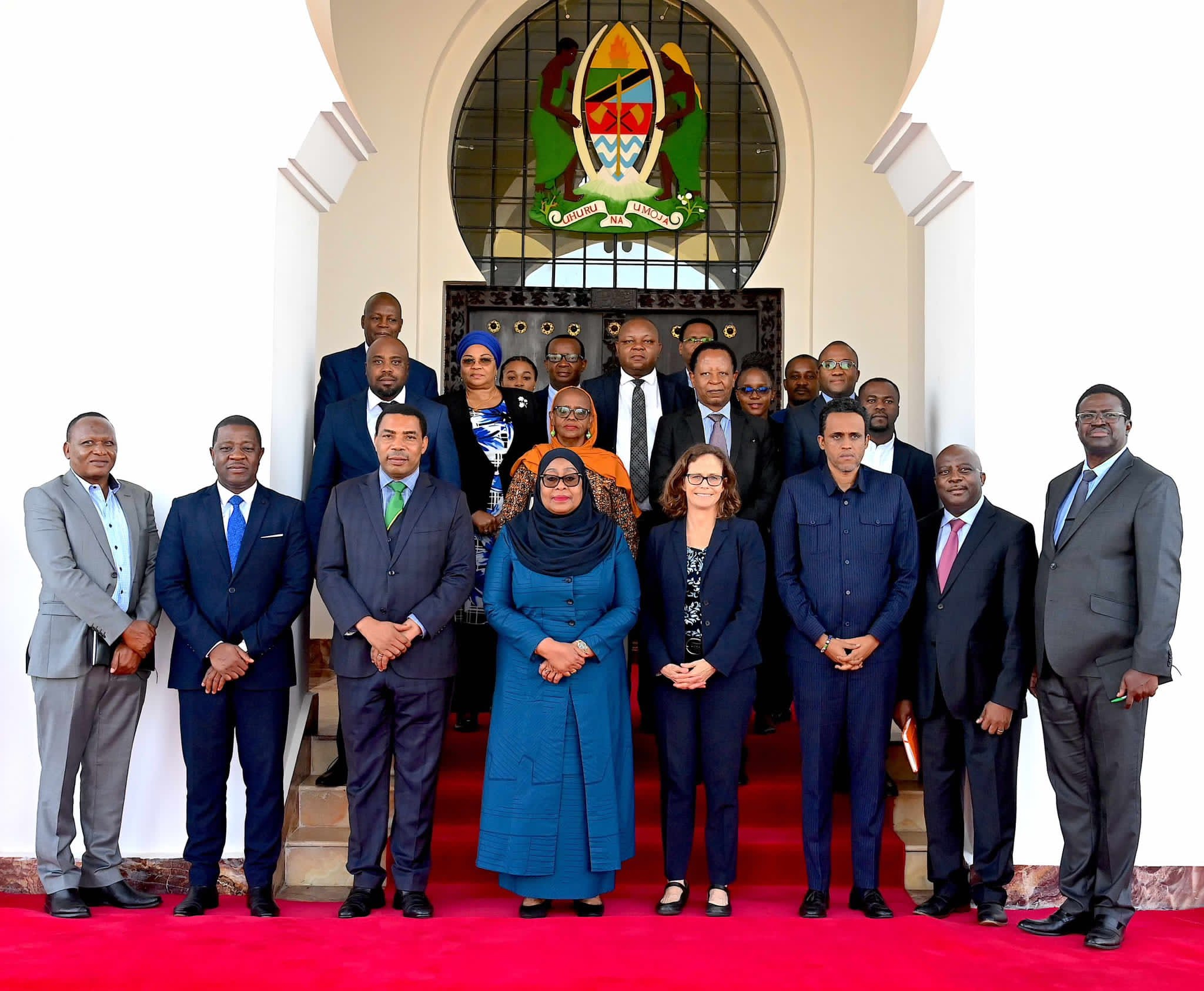Tanzania’s President Samia Suluhu Hassan held talks with the African Development Bank (AfDB) delegation on how to accelerate East Africa’s agricultural production and food security.
President Suluhu’s meeting with the AfDB discussed among other matters, the development agenda of her country.
They included the Bank’s recognition of Tanzania’s progress in developing its agriculture sector.
This follows January’s Dakar 2 Africa Food Summit where Suluhu was one of the Heads of State during the high-level summit.
Moreover, the forum discussed Tanzania food and agriculture delivery compacts centered on African solutions to boost the continent’s food systems.
Way forward post food summit
President Suluhu and the Bank agreed to increase collaboration with other development partners to ensure a holistic and integrated approach to the full realization of the Tanzania Food and Agriculture Delivery Compact.
Beth Dunford, vice president for Agriculture, Human and Social Development, commended President Hassan’s “dynamic leadership” and commitment to Tanzania’s agricultural transformation.
She said her advancing outcomes of the Dakar 2 Africa Food Summit are delivering impactful results for the people of Tanzania.
Consequently, Tanzania becomes the first East African country to set up a Presidential Delivery Council to oversee the implementation of its tripled Agricultural budget.
The Council will approve and advise on establishing an enabling environment to deliver on work plans across commodity value chains.
What’s more, Tanzania’s Food and Agriculture Delivery Compact, like other Dakar 2 country compacts, is rooted in agriculture and cuts across many sectors.
These include improving national, regional and international trade; affirming the “bankability” of women who work or own most of Africa’s small and medium agriculture enterprises who face barriers to financing; and, creating decent jobs for youth across Africa’s agricultural value chain.
Banking on agriculture
The Agriculture sector presents a huge opportunity for the creation of employment to absorb the youth and ensure achievement of food security for future generations.
To achieve this potential Tanzania’s government has called upon the Bank to finance a national initiative dubbed ‘Tanzania’s Building A Better Tomorrow’to attract more youth into agribusiness.“The Bank will provide young people with climate-smart technology packages for improved production of wheat, horticulture and for oilseed.
We will also provide them with access to finance and markets,” said the Bank’s Director for Agriculture and Agro-Industry, Martin Fregene.
EventAccording to AfDB the plans are underway to develop a Special Agro-Industrial Processing Zone in Tanzania’s southern highlands in 2023.
In addition, these will create economic zones in rural areas to provide one-stop agricultural infrastructure by concentrating commercial farm production systems, utilities, transport, processing and other services.
Furthermore, the zones also build capacity to scale up marketable food products for local and global markets.

